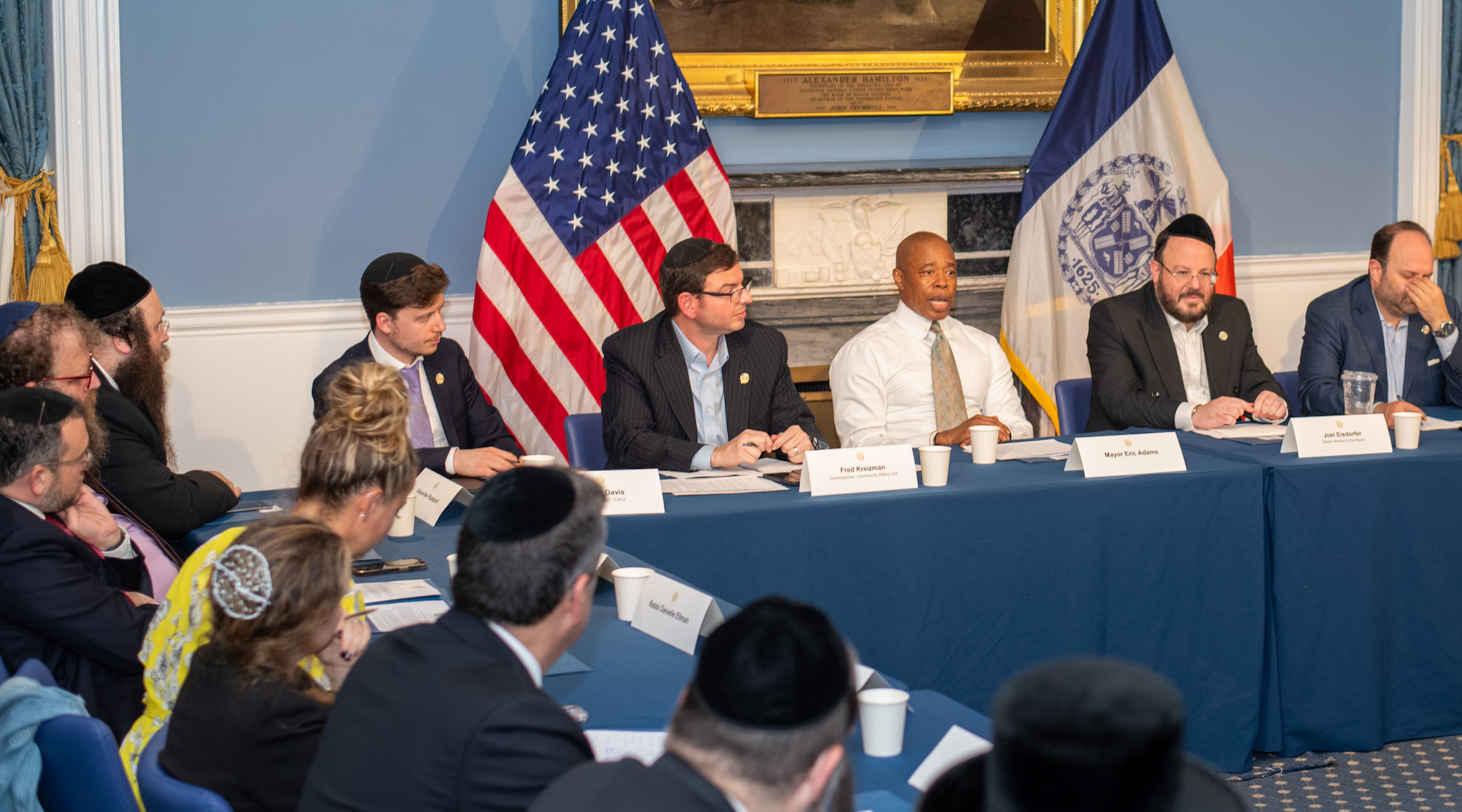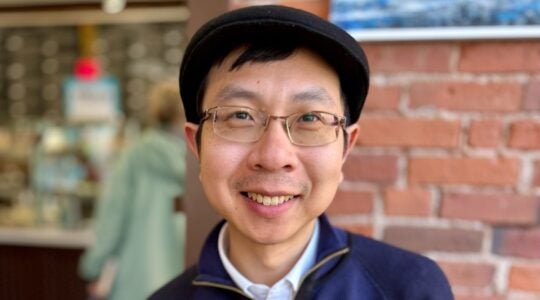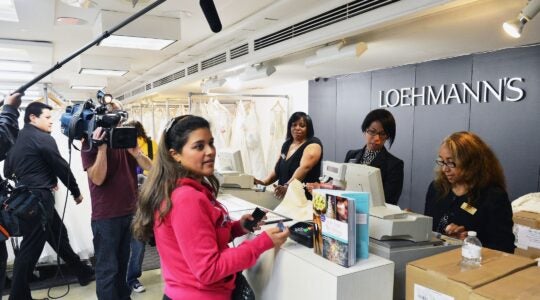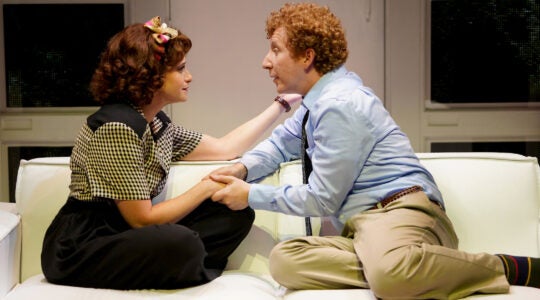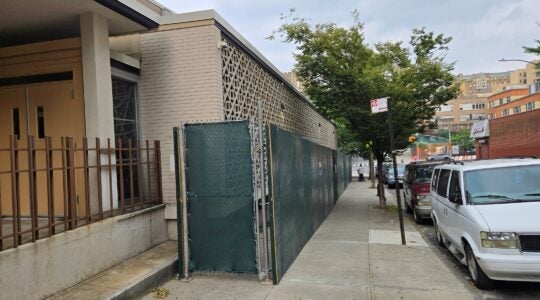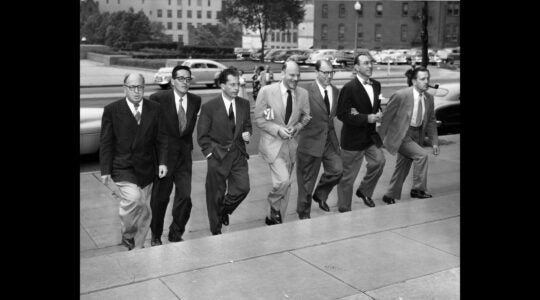(New York Jewish Week) — New York City Mayor Eric Adams’ office is pushing back against criticism that its newly inaugurated Jewish Advisory Council is not diverse enough.
That charge was aired in a New York Times story published Thursday that quoted liberal rabbis and U.S. Rep. Jerry Nadler saying the council had too few women and too many Orthodox members. The Times noted that 23 of the 37 members of the council are Orthodox and that only 9 are women.
Mayor Adams failed to “adequately represent the demographic diversity of Jewish New Yorkers,” Nadler, the Upper West Side Democrat, said in a letter provided to the Times. “I encourage the mayor to work to better account for that diversity with changes to the council’s membership so that it can be balanced appropriately to properly reflect the community’s full range of views and needs.”
Ruth Messinger, the former president of the American Jewish World Service and former Manhattan Borough President, backed Nadler’s statement.
In a statement, a spokesperson for Adams pushed back on the assertion that the council isn’t diverse enough. The spokesperson said that the council “comprises a diverse assembly of Jewish men and women hailing from various religious and cultural backgrounds, including Chabad, Conservative, Hasidic, Non-Denominational, Modern Orthodox, Reform, Sephardic, and Yeshiva Orthodox affiliations.”
The spokesperson added that “lumping these groups together to insinuate that there is either ‘too much’ or ‘not enough’ is a dog whistle that unfortunately resonates with the Jewish people all too well and disrespects the uniqueness and cultural originality of these institutions.”
The city hall spokesperson said that the Jewish Advisory Council was designed to be inclusionary and the mayor is encouraging all who believe they can contribute to apply to join.
Last week, the 37 rabbis, Jewish activists and community leaders gathered at City Hall to meet with Adams for the first meeting of the council, which was assembled to address issues affecting Jewish New Yorkers, including rising anti-semitism and antisemitic hate crimes, education and quality of life.
Rabbi Rachel Timoner of the Reform Congregation Beth Elohim in Park Slope and Rabbi Sharon Kleinbaum of the LGBTQ+ synagogue Congregation Beit Simchat Torah in Manhattan said that the council did not appear to include LBGTQ leaders or Jews of Color.
In a June 28 letter addressed to the mayor, Timoner and Kleinbaum wrote: “We know and admire some of the leaders you’ve selected to serve. However, we are deeply concerned that the makeup of your Advisory Council does not properly reflect the diversity of the community that you yourself said at the time you were committed to fully embracing,”
The letter refers to a May 2022 meeting in which Adams met with 55 women clergy who were concerned that he was only representing the interests and perspectives of male, Orthodox Jews. The meeting was a result of advocacy from the New York Jewish Agenda, a progressive Jewish group founded in 2020.
“New York Jewish Agenda exists, among other reasons, to achieve recognition by elected officials of the pluralistic, diverse Jewish community of New York, making the case that the majority of Jews in New York are liberal or progressive and often have a different set of priorities than do our haredi brothers or right-leaning siblings,” Timoner, a co-founder of NYJA, told the New York Jewish Week last year.
At the time, Timoner — who was named one of the New York Jewish Week’s “36 to Watch” in 2022 — said the goal of the meeting was for the mayor to see “that the vast majority of New York’s Jews are liberal and progressive,” because “the concern was that his administration was only consulting haredi leaders, as if they spoke for the whole community.”
In an interview Friday afternoon, Timoner explained that the key issue with the Jewish Advisory Council is not diversity for diversity’s sake; rather, it’s important for the council include liberal and progressive Jewish leaders so their concerns are represented, she said.
“When we went to meet with the mayor [last May], we brought a number of issues that Jews care about deeply — which include Jewish-specific questions like antisemitism, but also include questions that affect all New Yorkers, like affordable housing, health care, mental health care and climate change,” Timoner said. “The liberal part of the Jewish community sees ourselves as interconnected with other minority communities who are working to make our democracy more inclusive, and more equal, and, and to stand against hate against any group.”
“If the mayor is creating an advisory council that is predominantly composed of Jews who are bringing an agenda that is really only about Jews, that siloing of the Jewish people off from other communities is actually not safe for us, and also not aligned with the priorities and perspective of most Jews in New York,” Timoner added.
Timoner was not included in the Jewish Advisory Council, nor was Kleinbaum, who also helped organize the 2022 meeting. In fact, only one attendee of that May meeting was invited to the first council meeting: Rabbi Diana Gerson, the associate executive vice president of the New York Board of Rabbis.
“The Advisory Council is tilted so heavily to one part of the community that it reflects a very lopsided view of New York’s Jewish demography and has the potential to make the majority of New York’s Jews feel underrepresented and unheard,” Timoner and Kleinbaum’s letter said. “We hope that this was just an accidental oversight.”
Timoner and Kleinbaum indicated in their letter that they are not interested in joining the council. “This is not about us,” they wrote. “It is, however, about creating an official entity that reflects our mayor’s view of the Jewish people of New York. We hope that you will consider how most Jews will feel seeing this Jewish Advisory Council and reconsider whether it properly reflects your vision of the beautiful mosaic of New York City’s robust Jewish community.”
The mayor’s spokesperson also provided a statement on behalf of the council itself, reiterating City Hall’s claims that the group is composed of diverse Jewish leaders.
“Hailing from all five boroughs, we collectively bring a wealth of experience and knowledge to the Adams administration regarding the issues that affect New York City’s Jewish community and our city as a whole,” the statement said. “Our group has a dynamic blend of expertise in various sectors, ranging from social services and food pantries like Commonpoint, Met Council, and Masbia; to public safety organizations; to educational experts, particularly for children with special needs; and cultural institutions such as the Jewish Heritage Museum and the Jewish Children’s Museum. These organizations serve all New Yorkers.”
In a 2011 study, 40 percent of Jews in the city identified as Orthodox. The same study said that about 28% identified as Reform, 8% as Conservative, 25% as “nondenominational” and 22% as secular.
Rabbi Joseph Potasnik, a member of the council and executive vice president of the New York Board of Rabbis, told the New York Times that he planned to meet with the mayor’s senior adviser, Joel Eisdorfer — who was also one of the Jewish Week’s “36 to Watch” honorees in 2022 — to discuss adding members to the council.
“We’re not going to be fully effective if we’re not fully representative,” Potasnik told the Times.
In a phone call prior to the first meeting of the Jewish Advisory Council, Rachel Ain, a Conservative rabbi, told the New York Jewish Week that the Council was “a wonderful step towards expanding the voices at the table.”
“By the creation of the council and reaching out to people of all denominations, both within the synagogue-affiliated organizations and beyond, there is a commitment to understanding the New York City Jewish community,” she said.
The New York Jewish Week brings you the stories behind the headlines, keeping you connected to Jewish life in New York. Help sustain the reporting you trust by donating today.
